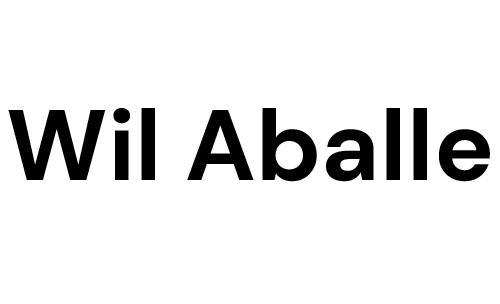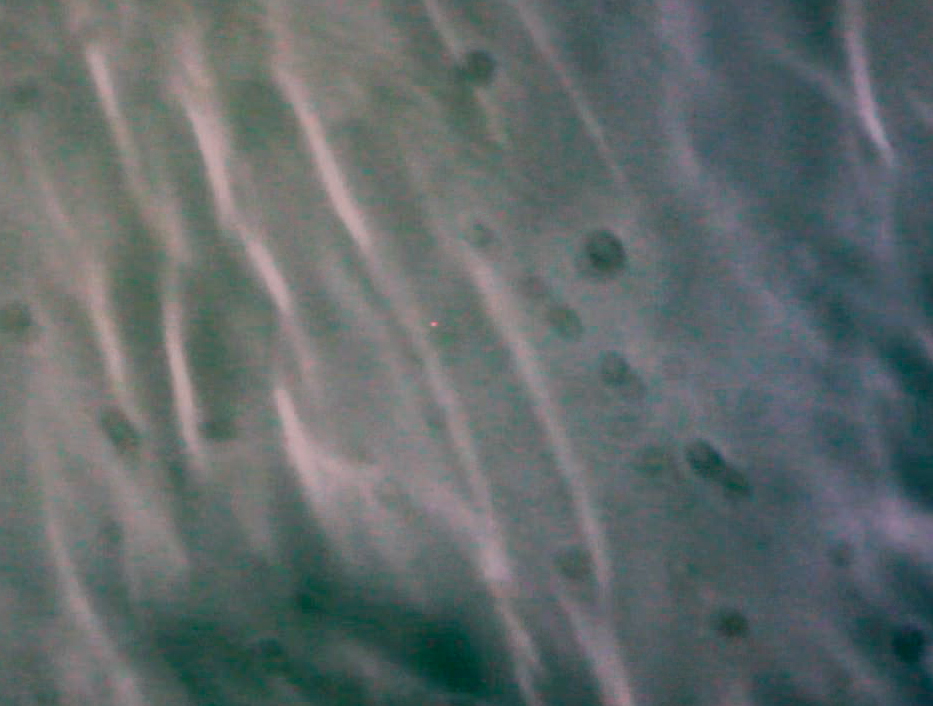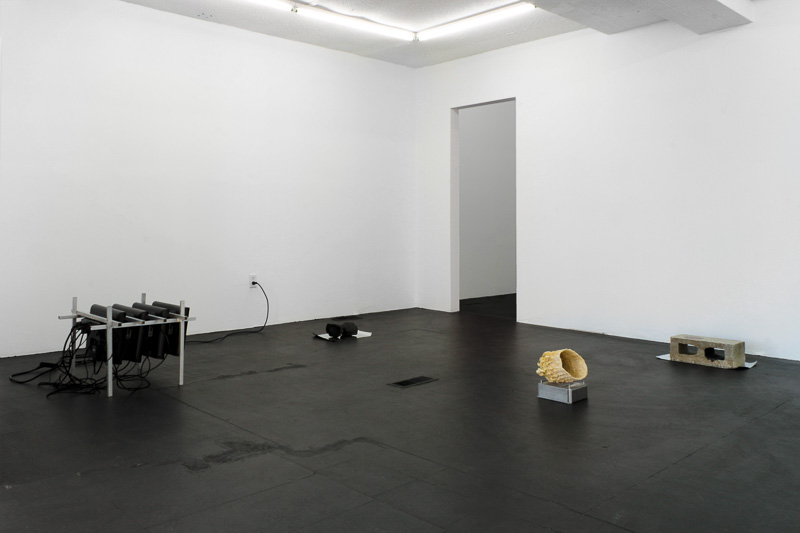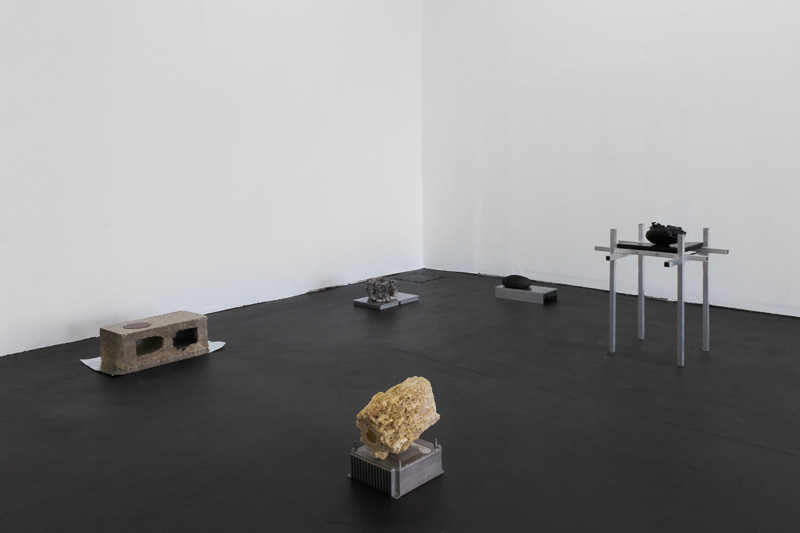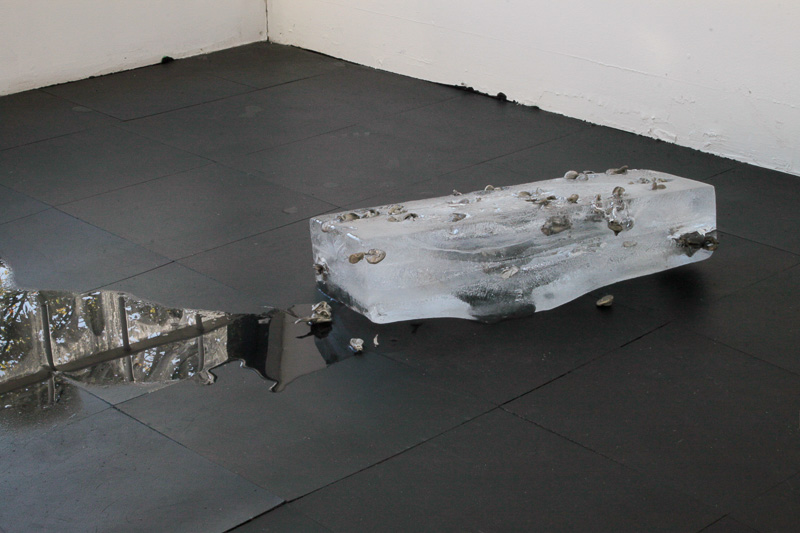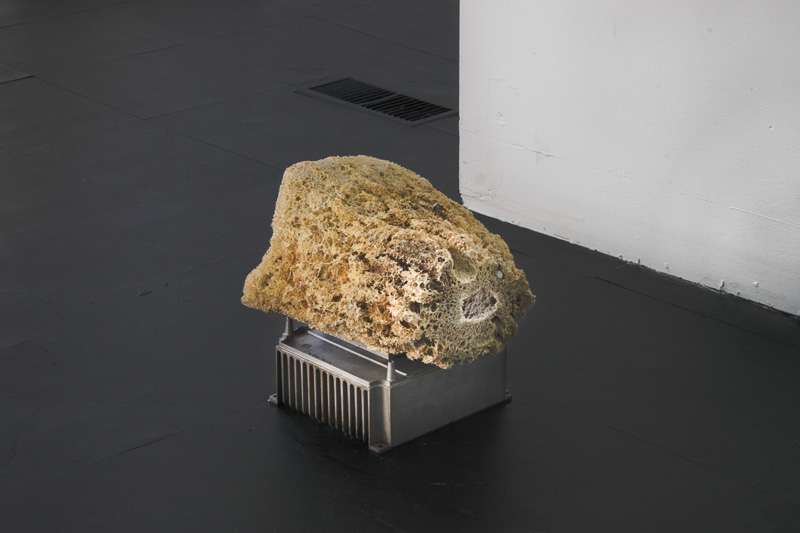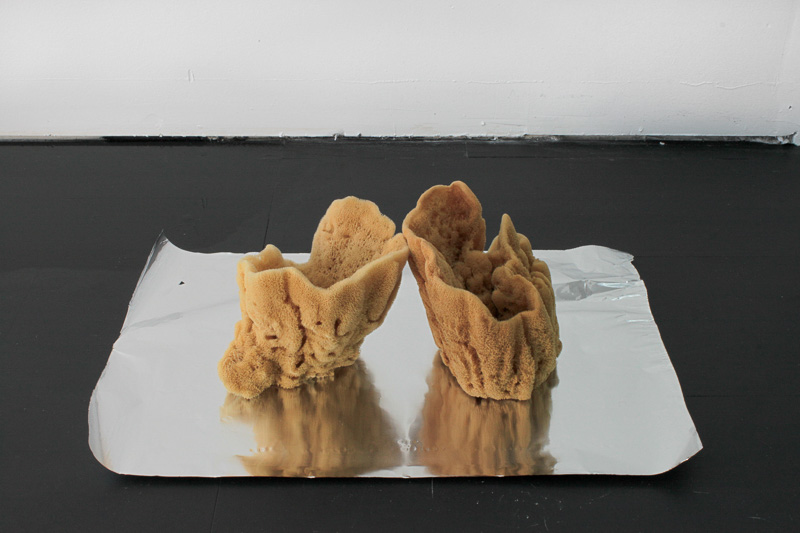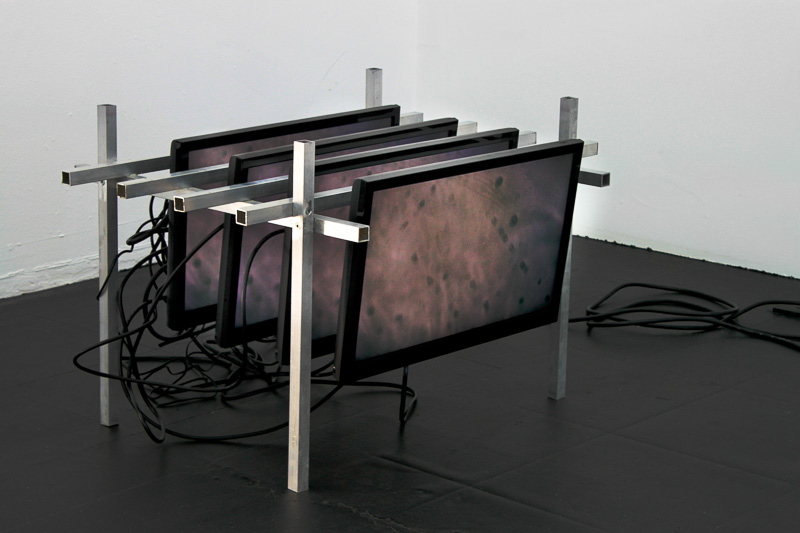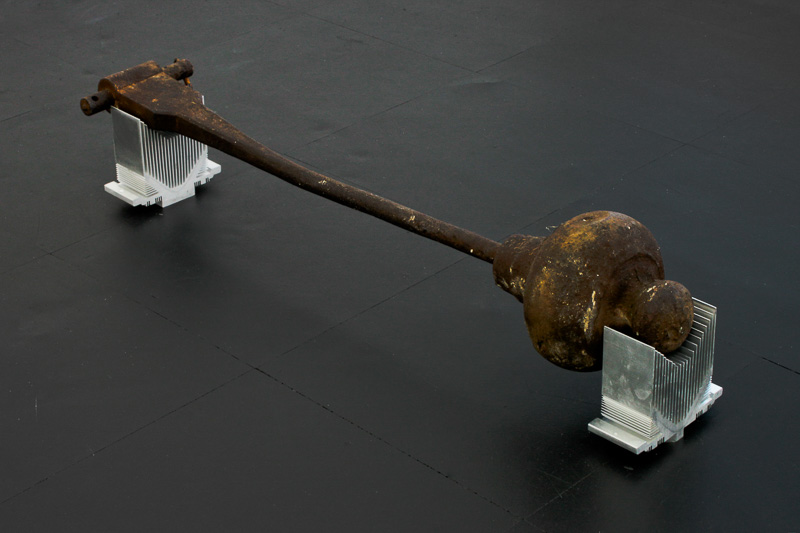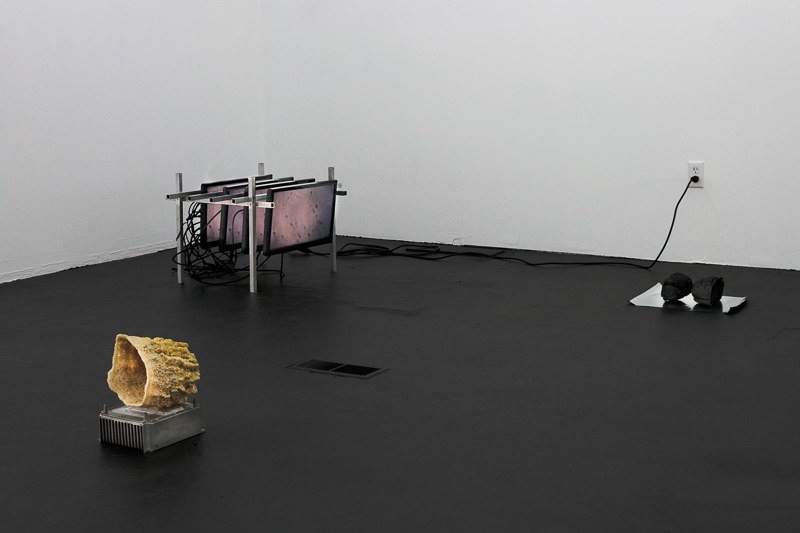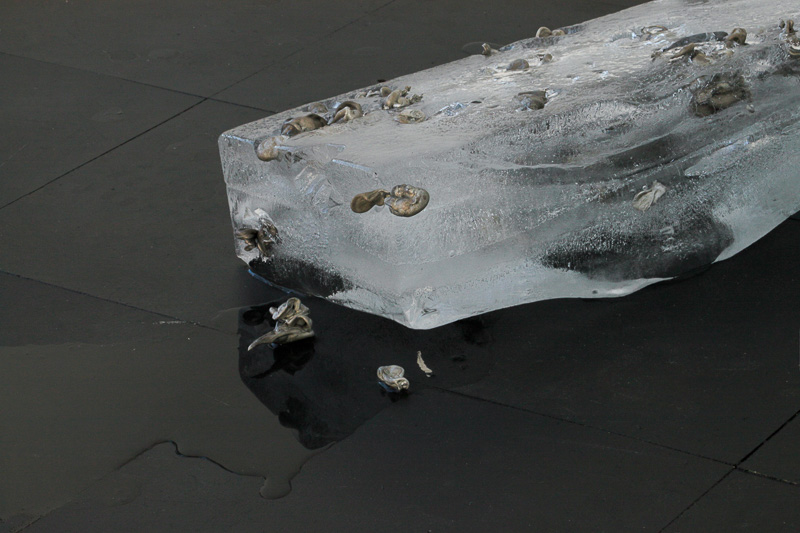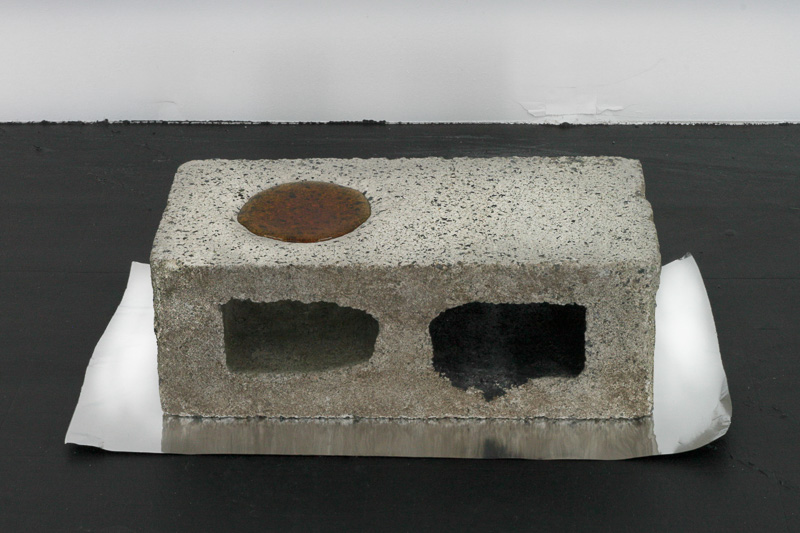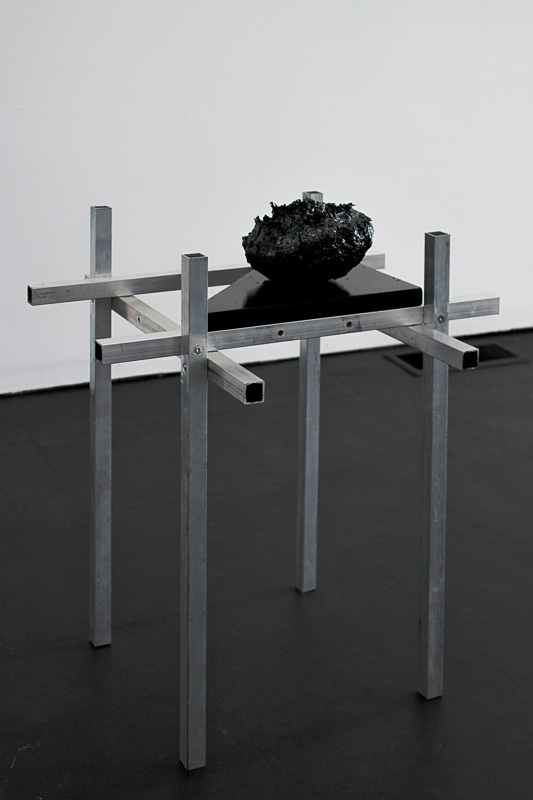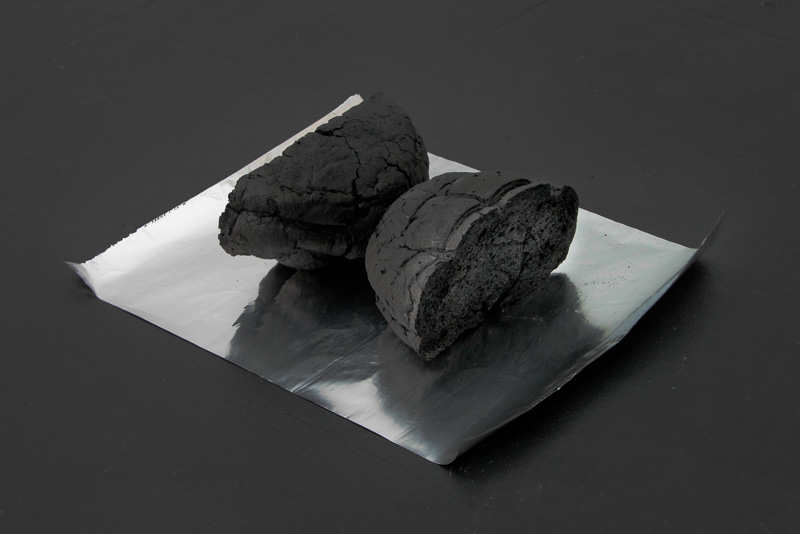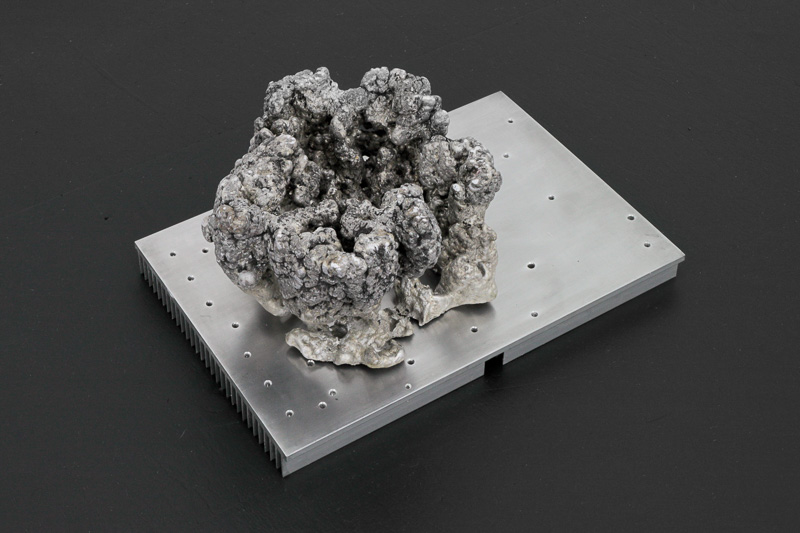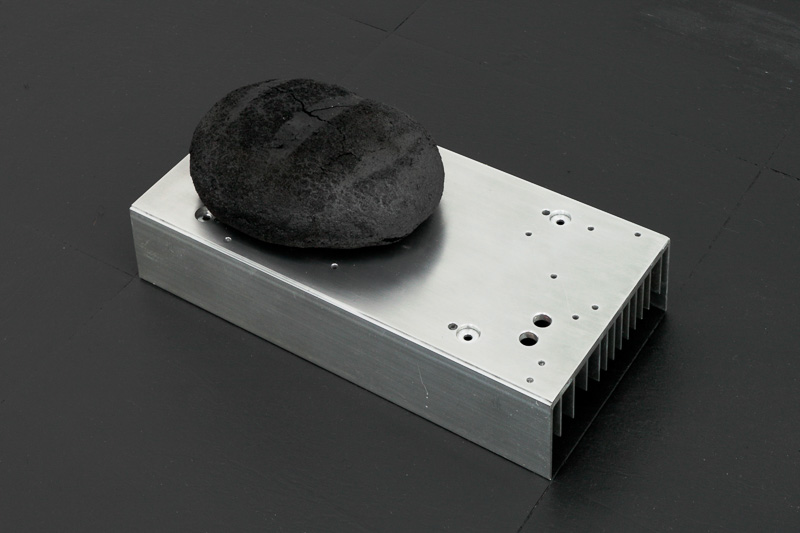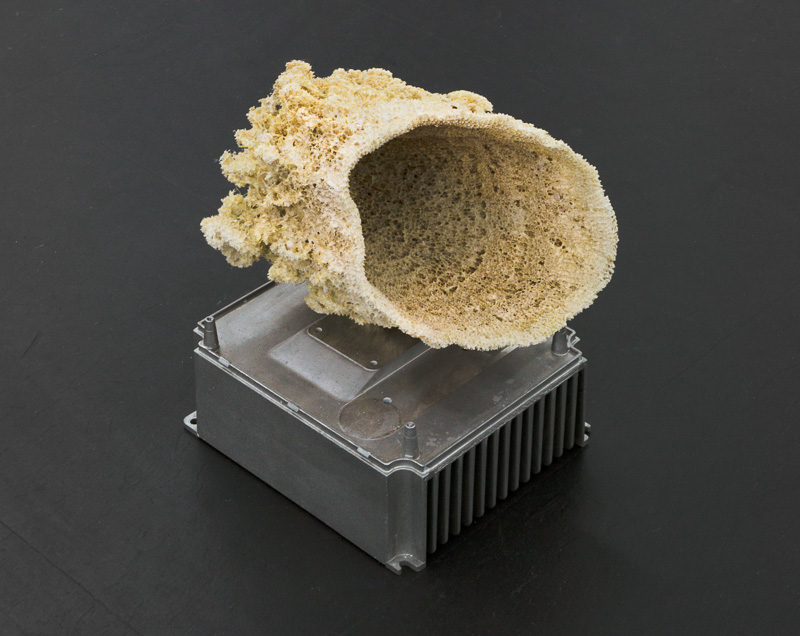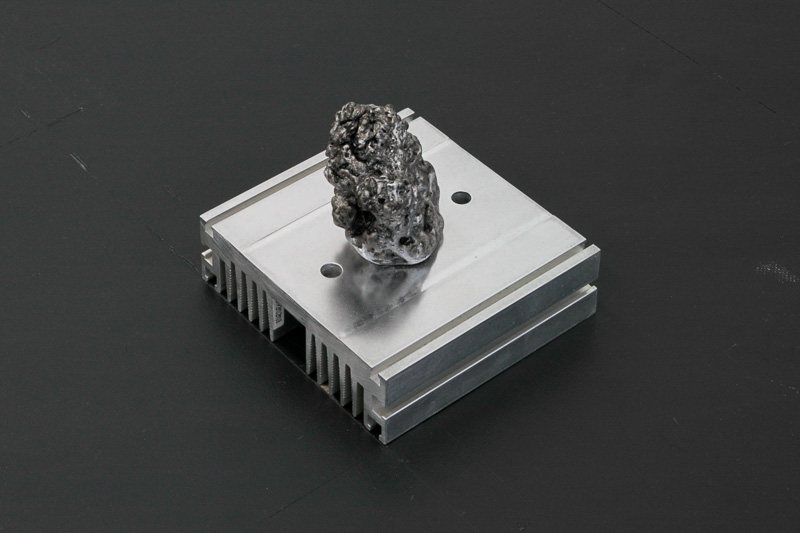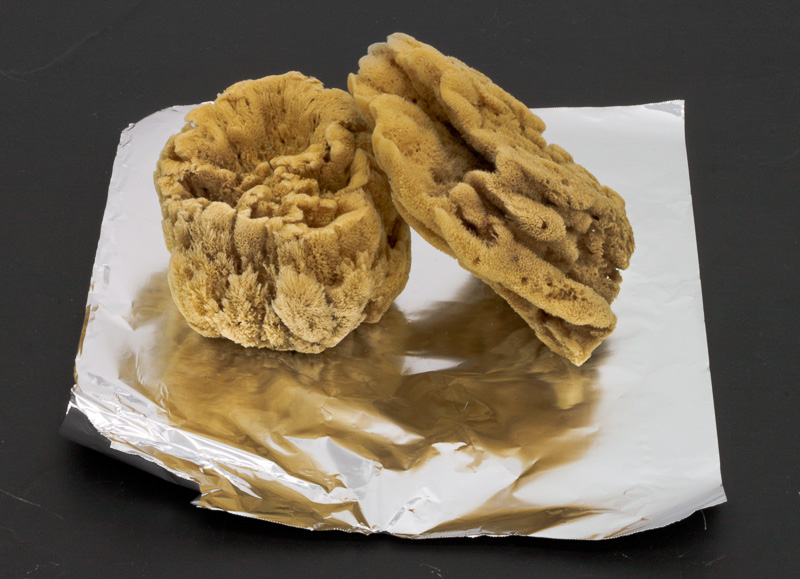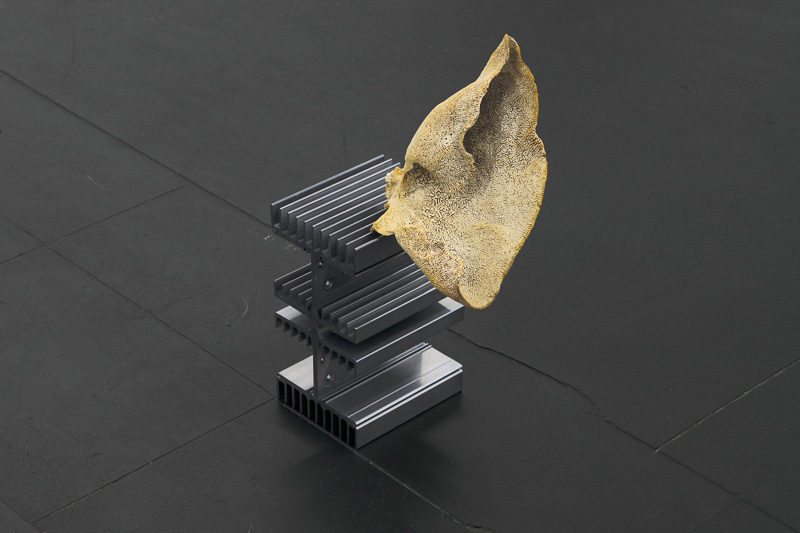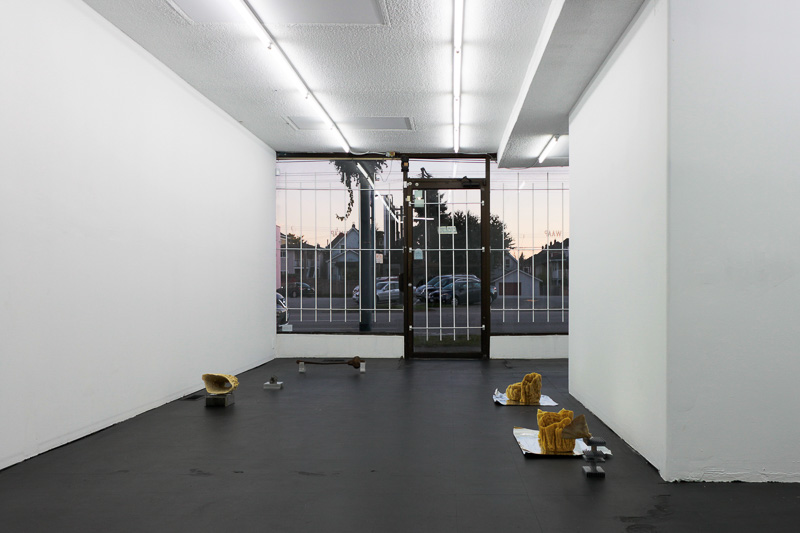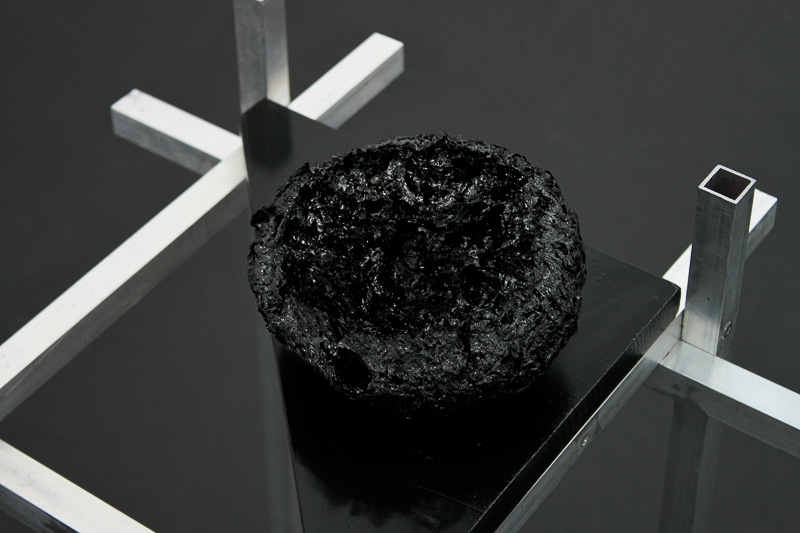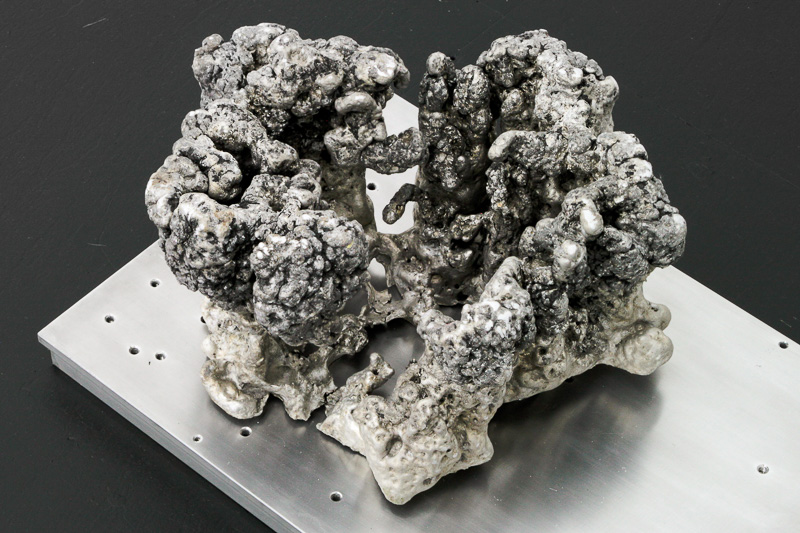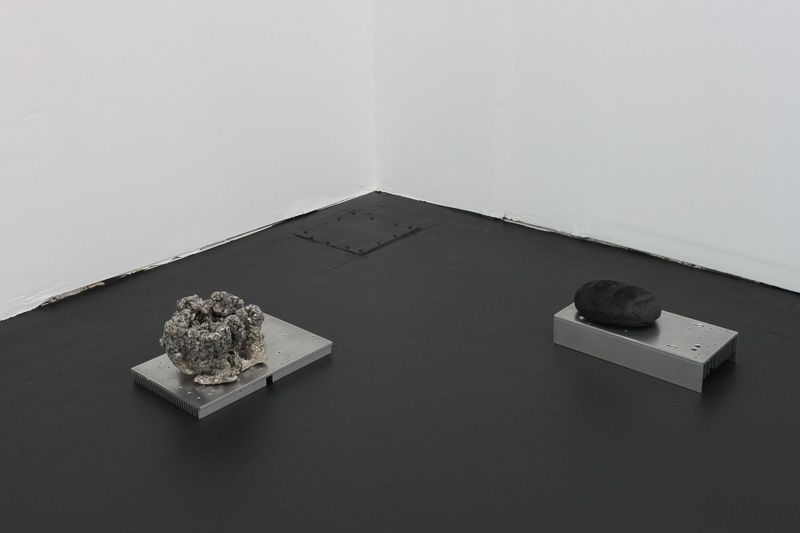Opening: Thursday, October 18, 6 to 8 pm
Exhibition: October 18 – November 17, 2018
Note the gallery’s new location:
1129 East Hastings St., Vancouver
Contact:
wil@waapart.com
www.waapart.com
The primary albeit unintentional product of capitalism is friction. Accumulating in the form of heat, this excess threatens to overwhelm and destabilize the infrastructures that safeguard value and ensure profitability. Accordingly, capitalist systems necessitate the use of heat sinks to control the various entropic artifacts produced by resource extraction, mass production, and dispossessive colonization. These sinks—as both architectural and ideological devices—serve to dissipate excess, mitigate friction, and hold entropy at bay.
Cottingham’s work uses a variety of material processes in tandem with materialist philosophy to read capital thermodynamically: as a system ultimately beholden to the laws of entropy and the equality of action-reaction. These laws are not broken—they are merely deferred, their consequences repressed in favour of an apparent production-without-loss (profit). Accordingly, Cottingham critiques the codes and architectures that allow these processes to move against the entropic flow or beyond the reach of equal reactions while also proposing forms that could recover a material justice. When capital compels all to order, the circumscription of heat must be reclaimed as an instantiation of loss-without-production.
STEVEN COTTINGHAM is an artist based in Vancouver. Recent exhibitions include What Is Pressure? What Is Temperature? (2017), Wil Aballe Art Projects, Vancouver; The Museum of Capitalism (2017), Oakland, CA; and Art Education in the Age of Metrics (2017), Herbert Read Gallery, Cambridge, UK. Cottingham has participated in residencies at Skowhegan School of Painting and Sculpture, Madison, ME; Zentrum für Kunst und Urbanistik, Berlin; and Fogo Island Arts, Fogo Island, NL. He received a Master of Fine Arts from the University of British Columbia in 2017.
Publication: Steven Cottingham, “Heat, death”, 2018 (PDF)
